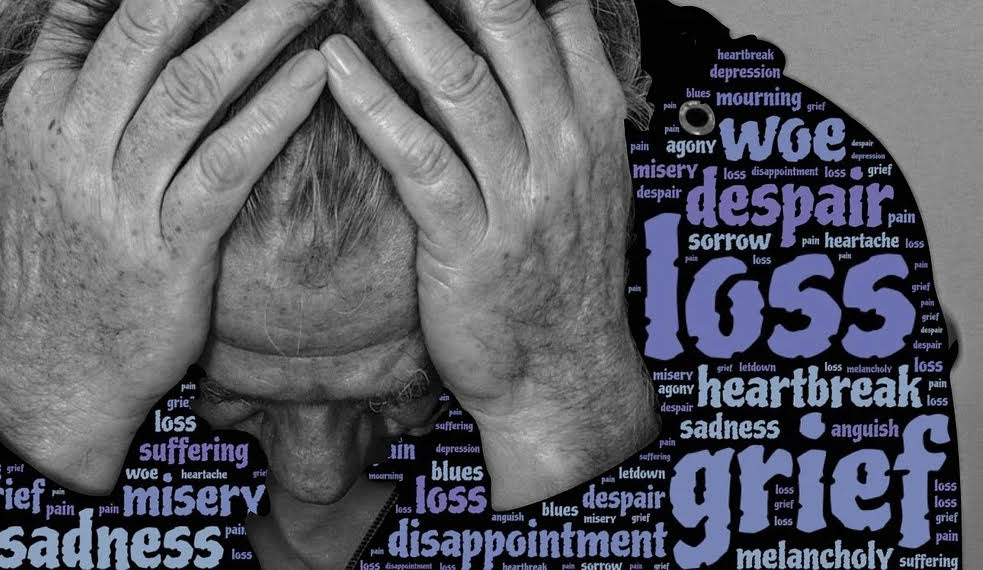Grief and loss are intrinsic parts of the human experience, arising from the loss of someone or something deeply meaningful. These emotions touch every aspect of our lives—emotional, physical, mental, and spiritual. Understanding grief and finding healthy ways to cope can help you navigate through one of life’s most challenging journeys.
Understanding Grief: Navigating Complex Emotions
Grief is often perceived solely as sadness following the death of a loved one, but it is far more complex. It encompasses a wide range of emotions, including anger, confusion, guilt, and even relief. These emotions can fluctuate daily or moment-to-moment, making the grieving process like a rollercoaster.
Grief is not a linear process. It doesn’t follow a set timeline or predictable pattern. Instead, it is a highly individualized experience, influenced by your relationship to the loss, personality, past experiences, cultural background, and the support you receive from others. There’s no “right” way to grieve. What’s most crucial is allowing yourself the space and time to experience grief in a way that feels authentic.
Types of Grief: Recognizing and Validating Different Forms
Understanding that grief can manifest in various forms helps in recognizing and validating your experience, as well as the experiences of others. Some of the most common types of grief include:
– Anticipatory Grief: This type of grief occurs when a loss is expected, such as when someone is facing a terminal illness. Anticipatory grief allows you to begin processing your emotions before the actual loss occurs. While it can be a time for closure and saying goodbye, it can also be fraught with anxiety and sadness.
– Disenfranchised Grief: This form of grief arises when the loss is not openly acknowledged or socially supported. For example, the grief associated with the loss of a pet, a miscarriage, or the end of a non-traditional relationship may not be fully recognized by others, leading to feelings of isolation and invalidation.
–Complicated Grief: Also known as prolonged or chronic grief, this occurs when feelings of loss are debilitating and do not improve over time. Those experiencing complicated grief may feel stuck, unable to return to normal life, and might require professional help to move forward.
– Cumulative Grief: This type of grief can occur when someone experiences multiple losses in a short period. The cumulative effect can be overwhelming, making it difficult to process and heal from each individual loss.
– Collective Grief: Sometimes, grief is experienced by a community or even an entire society. This can happen after natural disasters, tragedies, or pandemics, where the sense of loss is shared among many people. Collective grief can bring people together but also intensify individual feelings of sadness and helplessness.
Causes of Grief: Beyond the Loss of a Loved One
While the death of a loved one is the most recognized cause of grief, many other types of loss can also trigger the grieving process. Understanding these diverse causes can help you recognize and address your feelings, even if they don’t fit the traditional mould of mourning.
– Loss of Relationships: Whether through divorce, a breakup, or estrangement from family or friends, the end of a significant relationship can lead to profound grief. Losing companionship, shared memories, and the envisioned future can be deeply painful.
– Loss of Health: A decline in health, whether through illness, aging, or injury, can cause grief. This often includes mourning the loss of physical abilities, independence, and the life you knew before the health issue arose.
– Job Loss and Financial Instability: The loss of a job or financial security can be a significant source of grief. Beyond the practical concerns of income and stability, these losses can impact your sense of identity, purpose, and self-worth.
– Major Life Transitions: Retirement, moving to a new home, or other significant life changes can trigger grief. Even positive changes can bring about a sense of loss as you leave behind familiar environments, routines, and roles.
– Loss of Safety and Security: Traumatic events such as accidents, natural disasters, or violent crimes can shatter your sense of safety and security, leading to grief. This type of grief is often intertwined with feelings of fear, anxiety, and helplessness.
Coping with Grief: Strategies for Emotional Healing
Coping with grief is a deeply personal process, and there is no one-size-fits-all approach. However, certain strategies can help you manage your emotions, find meaning, and move forward.
– Allow Yourself to Grieve: The first step in coping with grief is to allow yourself to experience it fully. Don’t try to suppress your emotions or force yourself to “move on” before you’re ready. Grief is a natural response to loss, and it’s important to give yourself permission to feel it.
-Seek Support: Grief can be an isolating experience, but it’s crucial to reach out for support. This can come from friends, family, support groups, or mental health professionals. Sharing your feelings with others who understand can provide comfort and help you process your emotions.
-Take Care of Your Physical Health: Grief can affect your body and mind. Ensuring that you get enough sleep, eat a balanced diet, and engage in regular physical activity can help you manage the physical symptoms of grief and maintain your overall well-being.
-Create Rituals: Traditional and personal Rituals can provide a sense of closure and help you honour the memory of what you’ve lost. This might include participating in religious ceremonies, creating a memorial, or engaging in meaningful activities to you and the person or thing you lost.
– Express Your Grief: Finding ways to express your grief can help release the emotions building up inside you. This might include writing in a journal, creating art, or talking about your feelings with others. The act of expression can be cathartic and provide a sense of relief.
– Be Patient with Yourself: Healing from grief takes time, and there’s no set timeline for when you should feel “better.” Be patient with yourself as you navigate the ups and downs of the grieving process. Some days will be harder than others, and that’s okay.
– Recognize the Signs of Complicated Grief: If you find that your grief is not improving over time or that it is interfering significantly with your ability to function, it might be a sign of complicated grief. In such cases, it’s important to seek professional help to guide you through the healing process.
– Celebrate Small Victories: As you move through your grief, recognize and celebrate the small victories. Whether it’s getting through a day without crying, returning to a beloved hobby, or reconnecting with friends, these milestones are important signs of healing.
Real-Life Example: Moving Through Grief
Let’s consider the story of John, who lost his wife unexpectedly. John found himself overwhelmed by grief, struggling to find a way forward. By allowing himself to grieve, seeking support from friends and family, and engaging in daily walks (a ritual he and his wife had cherished), John slowly began to find moments of peace. He also started journaling, which helped him process his emotions and remember the joyful times he had shared with his wife. John’s journey through grief was not easy, but by embracing these strategies, he found a path toward healing.
Conclusion: Navigating the Journey of Grief
Grief is a profound, often painful experience but also a testament to the love and value we place on the people, relationships, and aspects of our lives. While the journey through grief is challenging, it is also a path that can lead to personal growth, resilience, and a deeper understanding of life’s impermanence. Call to Action: Remember, you don’t have to navigate this journey alone. Support is available, whether from loved ones, professionals, or communities who have experienced similar losses. If you’re struggling with grief, consider for support and guidance.



